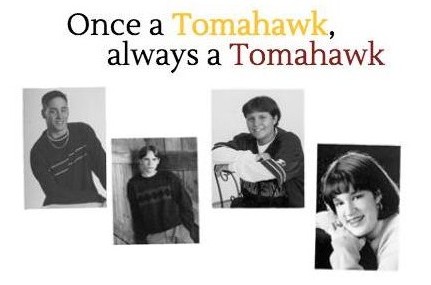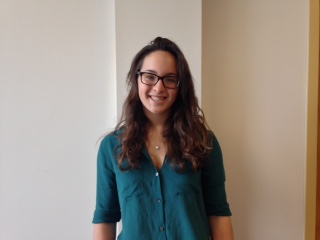From student to teacher
Four Class of 2000 graduates return to where they started
February 4, 2016
Four students from the Class of 2000 graduated without expecting to find themselves back at their high school in new roles years later. However, social studies teacher Amelia [Davis] Braun, physical education teacher Melissa Fustino, special education aide Mike Mocerino, and guidance counselor Jason Lessard are each part of Algonquin’s faculty today.
Despite graduating together, each graduate found his or her way back to ARHS at different points with Braun joining the faculty in 2005, Fustino in 2007, Mocerino in 2006, and Lessard in 2010.
Braun, Fustino, and Mocerino found a path circling back to the school through coaching experiences.
“I didn’t know what I wanted to do when I got out of college,” Mocerino said. “When [former Athletic Director] Mr. Whitten called me up to come back to the building, there was a special education position open, and once I came back here and started coaching for a year and started in the special education position… I sort of found that love for teaching and realized it was the right career path.”
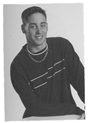
Special education aide Mike Mocerino posing in his 2000 yearbook photo.
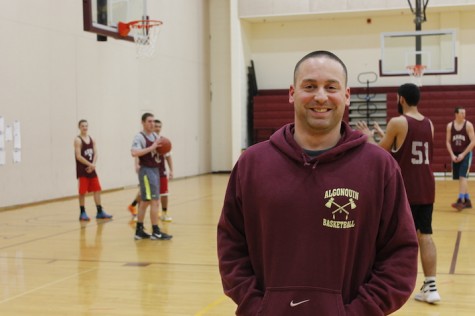
Mocerino, now, in the midst of coaching the boys’ basketball team.
Mocerino coached basketball and baseball while Braun focused on gymnastics and cheerleading as Fustino coached basketball and softball. They each played the same sports they coached during their time as students.
Lessard, on the other hand, connected back to the school via an internship.
“I interned here… and at several schools throughout the area,” Lessard said. “I liked this school the best and I thought I would reach out for an internship and then, through chance of counselors leaving, I ended up staying.”
Braun, Mocerino, and Fustino also progressed into more permanent positions beyond the coaching experience.
“I student taught with [social studies teacher] Mr. Barry when I was in college, and then [English teacher] Ms. Betar was going out on maternity leave, so I was her sub,” Braun said. “And then there was an opening in the department. So I was in the right place at the right time.”
“That’s kind of what happened with me, too,” Fustino said. “[Former health and fitness teacher] Karen Perry was having knee surgery so I was her long-term sub. And then I went back to school for teaching and I finished my degree just as she was retiring, so I was hoping to fall in and get that job- which, luckily, I did.”

Physical education teacher Melissa Fustino in her 2000 yearbook photo.
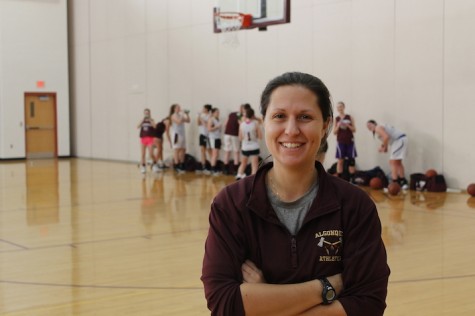
Fustino, now, coaching the girls’ basketball team.
Reminiscing about their years as students, the alumni relish the memories shared and experiences accumulated at the school.
“[My most memorable moment] was just making the playoffs my senior year in basketball because we were so atrocious the two years before,” Fustino said. “And just the fact that we were able to make it, that was a highlight.”
Mocerino and the baseball team of 1998 pitched and played at Fenway Park for the state championships.
“When you look back, you realize it was four of the best years,” Mocerino said. “I really enjoyed it here. I think [the school] did a great job preparing us for after high school, whether it was college or beyond.”
“The things I do really remember were the really random elective courses,” Lessard said. “I tried a auto-mechanic course. I remember finding it so fascinating and it was such a cool class that was so different from all my other courses.”
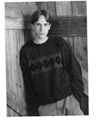
Guidance Counselor Jason Lessard as a student.
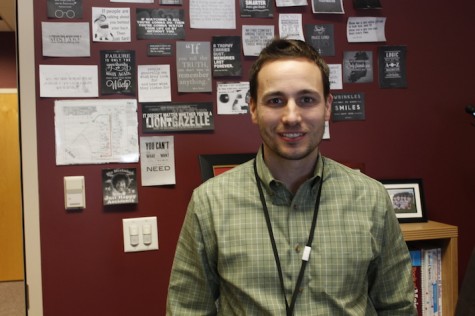
Lessard, today, in his office.
The Class of 2000 also endured and partook in challenging the Northborough-Southborough community’s idea of de-regionalizing the school.
“Our senior year, there was a big push from community members to de-regionalize the school,” Braun said. “And there was a town meeting in Southborough that was going to be so heavily attended…. All of us students lined the driveway dressed in maroon and gold, holding signs to show our support for keeping Algonquin together. I actually spoke on the town meeting floor. And I think because of the grass roots efforts of the students to explain to people who didn’t have kids here what Algonquin meant, we managed to keep it together. I’d say that was pretty memorable.”
As students, each alumni was involved not only academically, but also contributed to several extracurricular activities as well.
“I was copy editor of the Harbinger,” Braun said. “I was on the gymnastics team and I was Vice President of the class. I was also in NHS.”
“I played basketball and softball, Fustino said. “I was actually the sports editor for the fall season [of the Harbinger]. I was also on Steering Committee.”
“I played basketball and baseball, that’s about it,” Mocerino said. “I also did one year of the Athletic Council.”
“I ran track, did theater, played trumpet, was in the mountain bike club, and [an art and science club] Odyssey of the Mind Club,” Lessard said.
They also recollect memories of each other as students.
“We’ve [Braun and I] have known each other since third grade,” Fustino said.
“I remember when Ms. Fustino moved to Southborough and joined my third period class,” Braun said.
“And I’ve known [Ms. Fustino] since eighth grade and then we went to college together,” Mocerino said.
“That’s right, UConn,” Fustino said.
“And then we all came back here,” Braun said.
“It’s nice working with people you went to school with because you share memories,” Fustino said.
All four of the alumni agreed their teachers, some of whom still hold positions in the school today, made heavy impressions on them.
“I think one thing that hasn’t changed is that the adults in the building when we were here were willing to step up and do what needed to be done for us and I think you [current students] still have that,” Braun said. “You have teachers who are willing to come out and help you with whatever you want to pursue. I think that’s something special about Algonquin too, that partnership between teacher and student.”

Social studies teacher Amelia Braun as a student in 2000.
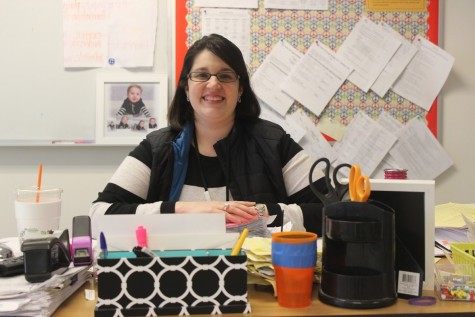
Braun in her classroom today.
“We wanted to give back to a place that gave [us] so much,” Fustino said.
“[My most memorable moment] academically was the relationships with your teachers,” Mocerino said. “Some of the teachers are still here.”
Despite the school bearing some similarities to when they were students, the alumni acknowledge certain notable differences.
“There used to a lot more heavily attended events,” Braun said. “But I think that’s because of the size of the school. There are so many more choices. Students today are pulled in a lot more directions than we were pulled.”
Mocerino commented on the technological shift, which he believes creates a less personal environment. Lessard agrees that this alteration has stimulated a slightly different environment of instant gratification due to technology.
Each alumni also remarked on the size of the school, with Fustino commenting on how different it is that not all of her students know each other, even if they are in the same grade. The Class of 2000 graduated with about 180 students whereas the average class size today is 350.
Even amongst these changes in school culture, the alumni recognize continuity in aspects about the school they appreciated as students and continue to love today as faculty members.
“I think we’re lucky, and all the students here are lucky, that we’re in a very positive school with a great community and tons of choices,” Lessard said.
“Underneath all that newness there’s that current of maroon and gold, T-hawk pride, love for the community, respect for each other,” Braun said.
Both Mocerino and Fustino agreed the spirit of T-hawk pride continues to be an integral component to the school and benefits the Algonquin experience as both a student and faculty member.
“We grew as students, as part of the community, and now we’re growing as part of the faculty,” Mocerino said.
“The kids change, the faces change, the building changes, but the Algonquin spirit stays the same,” Braun said.
Contributing Staff Ryan Strobel and Claire Duffy



